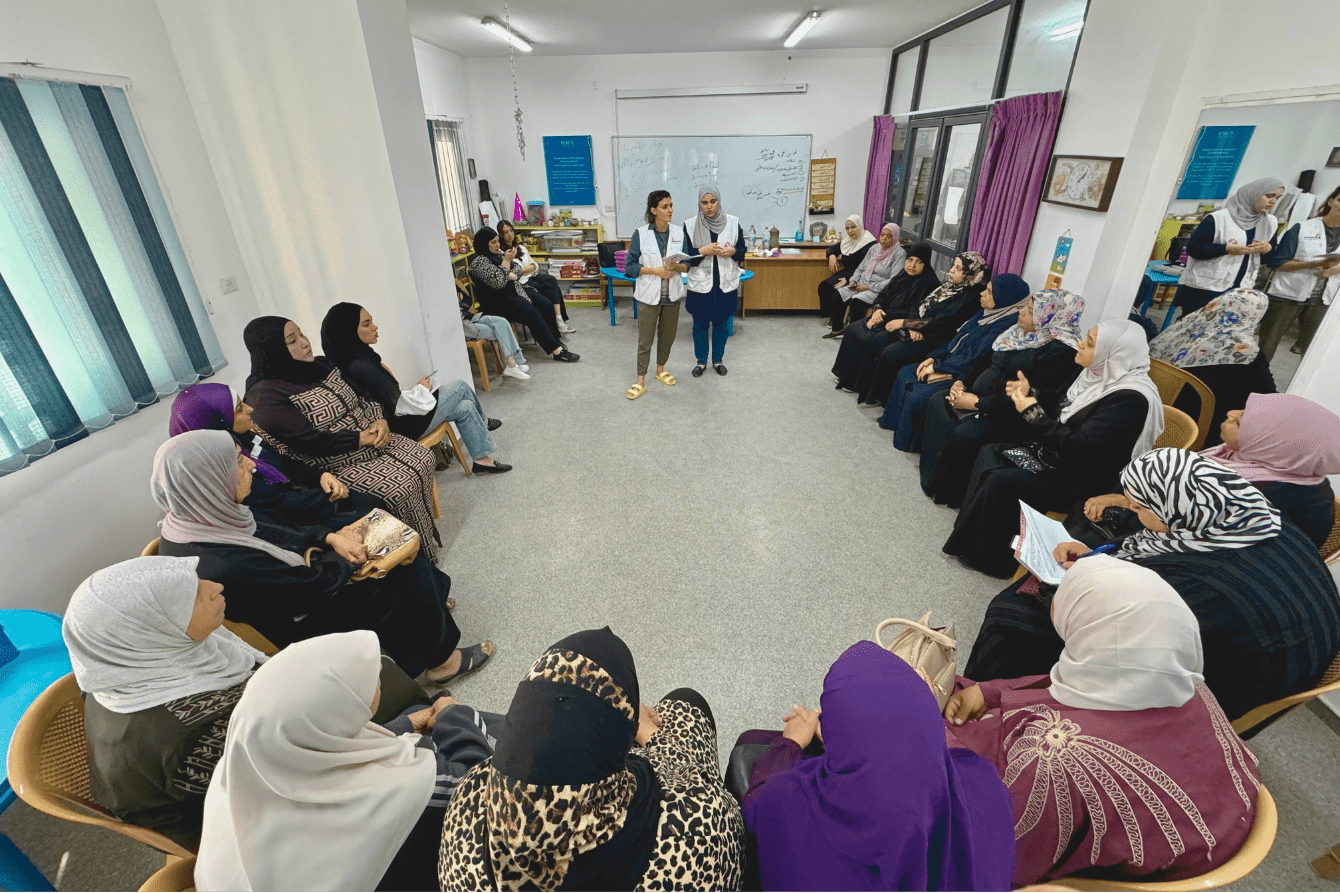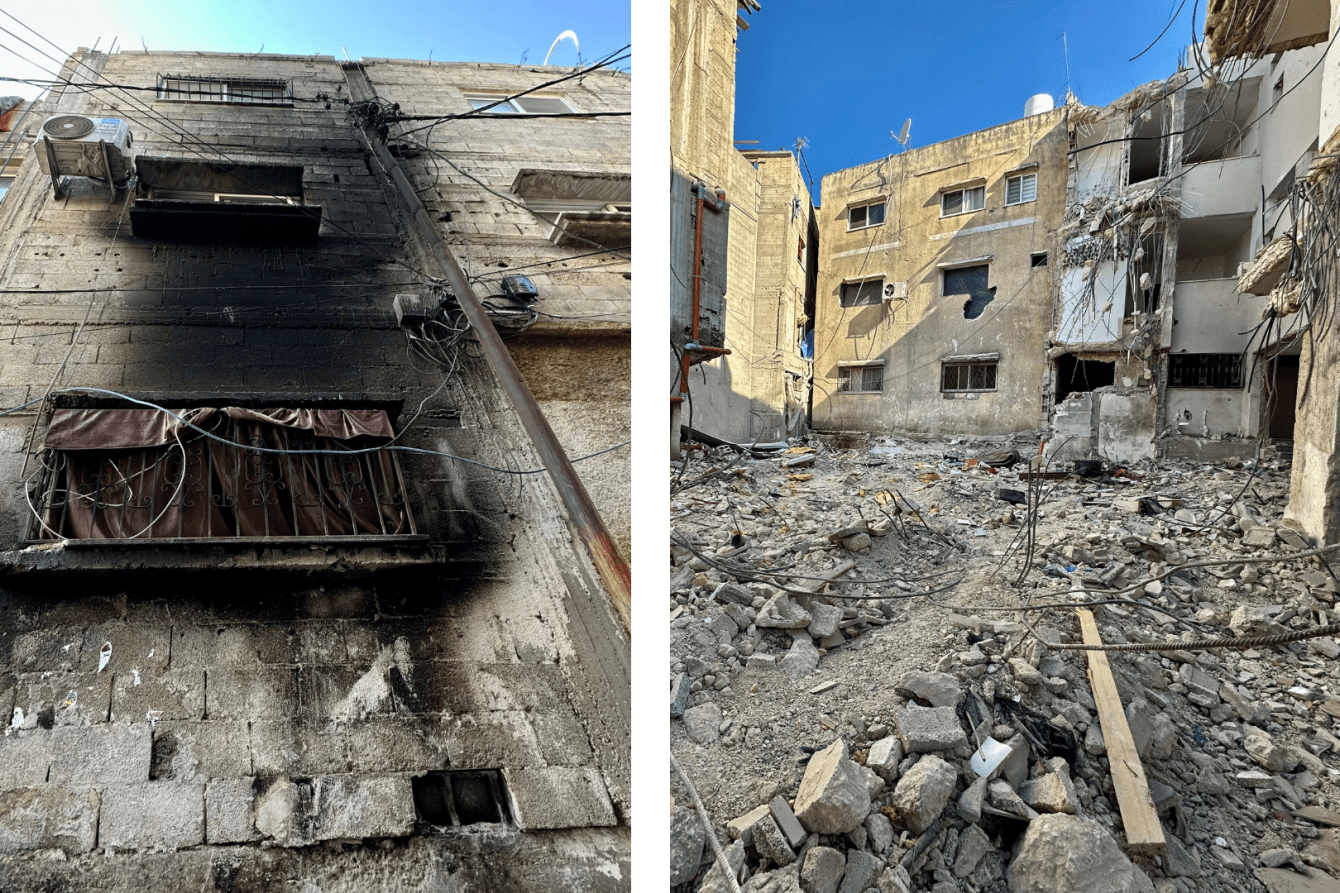On a sunny morning in Nur Shams refugee camp in Tulkarem, West Bank, women sit in a circle as they chat over Arabic coffee, beside a table holding gauze, tourniquet devices, and charts explaining blood flow in the human body.
Most of the women have little to no medical training, but they have come to learn how to care for wounds, apply tourniquets, and provide basic first aid in a Stop the Bleed training organized by Doctors Without Borders/Médecins Sans Frontières (MSF). This training will allow them to care for family members and friends until they can reach a medical facility during frequent Israeli military incursions.
“We suffer from raids, bombings, and injuries from shootings,” says Saeda Ahmad, a participant in the training in Nur Shams camp. “We often have an injured person right in front of us. In such situations, it's important for us to have the knowledge and background to properly administer first aid. During raids, it's extremely difficult for ambulances to reach the scene. That's why everyone in the camp needs to have some knowledge of first aid—so that we ourselves can help the injured person.”

Israeli military raids are intensifying, blocking access to care
In this part of the West Bank, military raids by Israeli forces are becoming increasingly frequent, and blocking access to health care is part of the modus operandi. During these raids, roads are often made impassable, ambulances are stuck, and health care workers are harassed and targeted. As a result, many wounded people cannot reach hospitals when they need urgent care.
Israeli forces’ incursions are also becoming increasingly violent and intense, and longer in duration. Drone strikes, airstrikes, and other bombardments by Israeli forces—often in densely populated areas and refugee camps—has become more common. On October 3, 2024, for example, 18 people were killed in an airstrike on Tulkarem refugee camp. These trends are not restricted to Tulkarem: just north, in Jenin, Israeli forced launched a large-scale military incursion that lasted for nine days in August.

Mental health in an environment of fear and insecurity
People living in these camps have described to MSF mental health staff the deep psychological impact of this constant violence. Israeli military incursions are reshaping their lives, stripping them of normalcy and any sense of safety. The fear and insecurity has made it impossible for people to live a normal life or plan for the future. Residents are always rebuilding torn up streets and destroyed houses while holding their breath until the next raid.
MSF is also providing psychological first aid to residents of the camp to address significant mental health issues stemming from these incursions, which affect all residents, but particularly children.
“The children in the camps are afraid to go to school, as they fear a raid might happen while they are there,” says an MSF community health educator in Tulkarem. “In their home life, stability has vanished. People remain on edge. Children have stopped playing in the alleys. They spend most of the time at home and are not able to go out. They can’t even go out to buy what they need because their parents won’t let them, out of fear that a raid or incident might occur while they’re outside. There are children whose entire playtime has become centered around the violence they have experienced.”

While trainings like “Stop the Bleed” can provide some sense of control over the situation by giving residents the tools to act in a medical emergency during an incursion, their very existence highlights how dire the situation has become in the West Bank.
During training sessions, emotional wounds often come to light while participants wrap each other’s arms with gauze, through conversation and by sharing photos of family members who were killed. Mending these deep psychological wounds will take more time than tightening a tourniquet.




